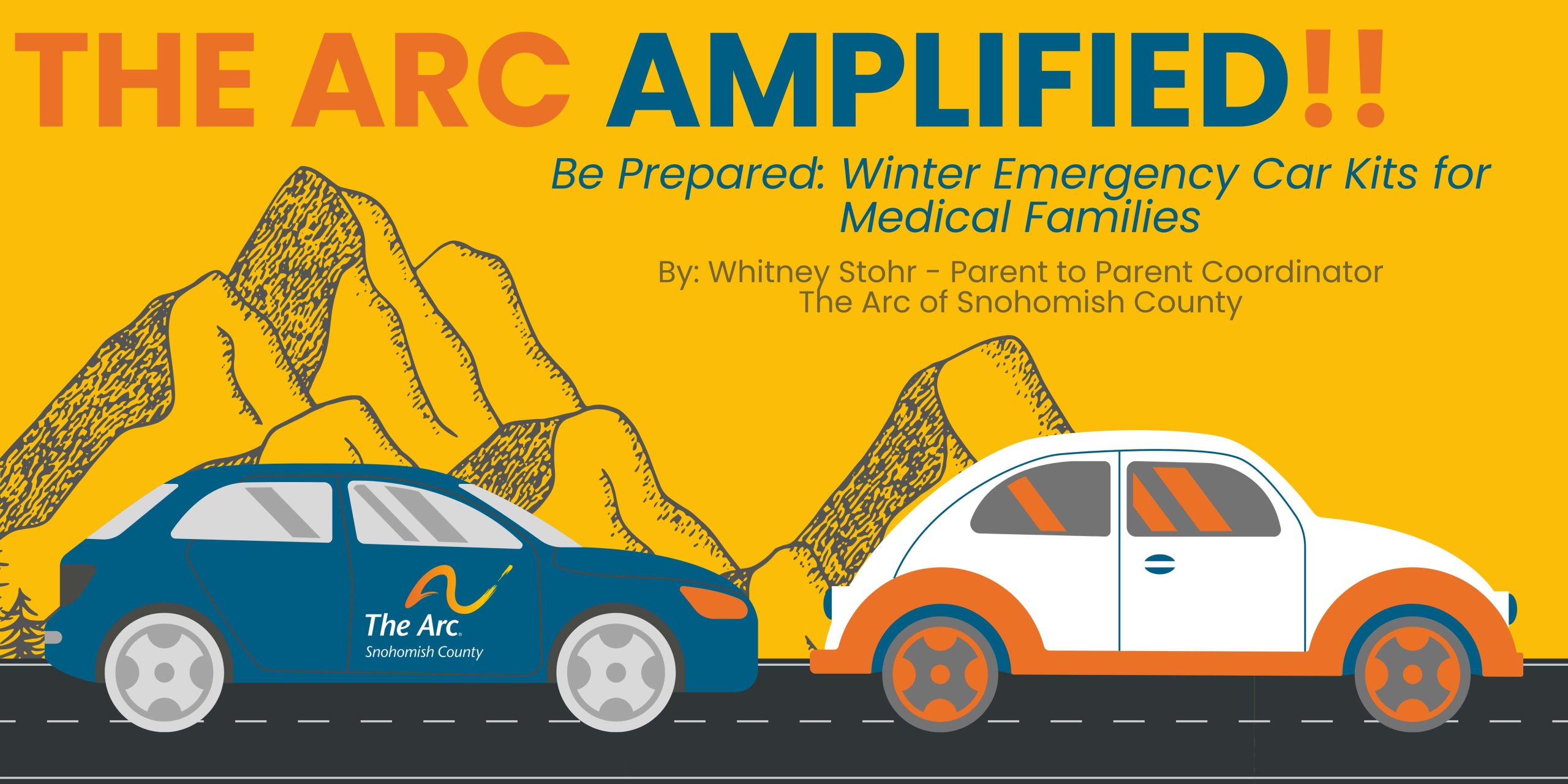
Be Prepared: Winter Emergency Car Kits for Medical Families
The first, big snowfall of the season always serves as a reminder to check and update your roadside emergency kits. These are the supplies you can turn to in the case of a serious emergency (vehicle accident or otherwise).
Roadside emergency kits are especially important if you are traveling long distances, over mountain passes in the winter months, or have someone in your car with a significant medical condition. (If you do not yet have an emergency kit in your car, make 2022 the year to get it done! It could save a life.)
You can find quality lists of items to include in your winter emergency kit with a quick Google search. The basics include:
- Warm blankets — Throw a few in your trunk!
- Flashlights and extra batteries
- Road flares or emergency lights
- Matches (stored in a waterproof bag or container)
- Small tool kit
- Jumper cables
- First Aid kit
- Phone charger
- Ice scraper/brush
- Kitty litter (for traction)
- Bottled water
- Non-perishable, high-energy food (e.g. nuts, dried fruit, protein bar)
- Other warm weather gear (e.g. rain poncho, winter gloves/hat, wool socks, hand warmers)
(Source: National Safety Council
Additionally, if you are the parent of a child with a serious medical condition, or you or your spouse have health challenges, it is equally important to keep extra medical supplies on hand. These necessary supplies will vary based on the individual’s specific needs, but some basics may include:
- Printed summary (short, one-pager) of diagnoses and other need-to-know information, including allergies, specialty medications (with dosage information), and individualized FAQs about your child (e.g. how do they communicate? Are there specific behaviors that paramedics need to know? Etc.)
- A 911, in-case-of-emergency list — include contact information for other family members, doctors, pharmacies, home hospital/specialists
- Health insurance information (including copies of airlift/medical flight insurance cards)
- Several-day supply of emergency medications
- Extra medical supplies and emergency equipment
- Clothing, diapers & diaper wipes
- Special foods/formulas & feeding supplies (e.g. back-up feeding pump, gravity bags, an extra MIC-KEY button, lubricant packets, extra syringes)
- Jugs of sterile water
- Extra face masks, hand sanitizer & Clorox wipes
- Finger oximeter
- Portable power support, or back-up battery, strong enough to run medical equipment
- Any additional “life-saving” equipment that may be needed (e.g. resuscitation bags, extra oxygen tubing and connectors, etc.)
It is also a good idea to use a bag that can be easily identified by paramedics as containing medical supplies. (Examples: A red, “medical-looking” duffel or a bag with a medical cross) Consider the type of bag that would draw the attention of emergency personnel if you, and all other adults in the car, were unresponsive.
Also, remember: Always fill up on gas before heading out on a long trip during the winter months. You will be happy you did if you get stuck at the top of the pass or end up off the road in the middle of the night. (Click here for additional winter weather, car-prep tips.)
**********
Whitney Stohr is a Parent to Parent Coordinator at The Arc of Snohomish County. She is passionate about advocating for medically complex children and children with disabilities and their families. She is a mom and medical caregiver herself, who is energized by working closely with other parent/family caregivers. She lives with her three-year-old son Malachi and husband Jason in Lynnwood. Connect with her on Instagram @rollin.w.spinabifida. Contact: whitney@arcsno.org.

